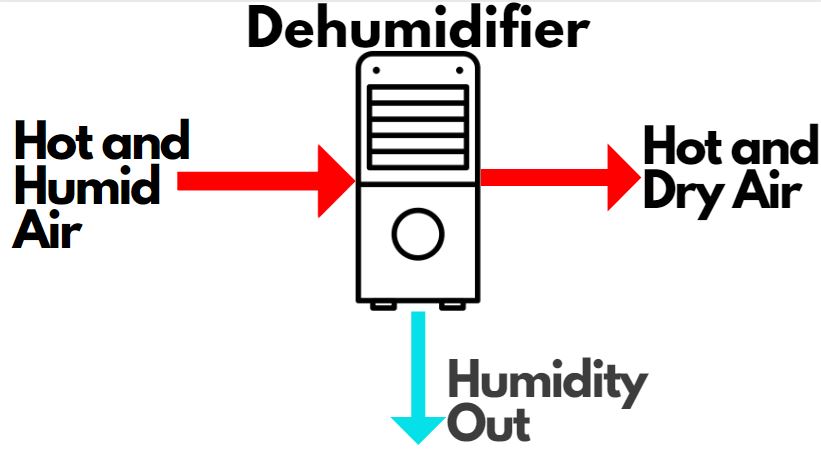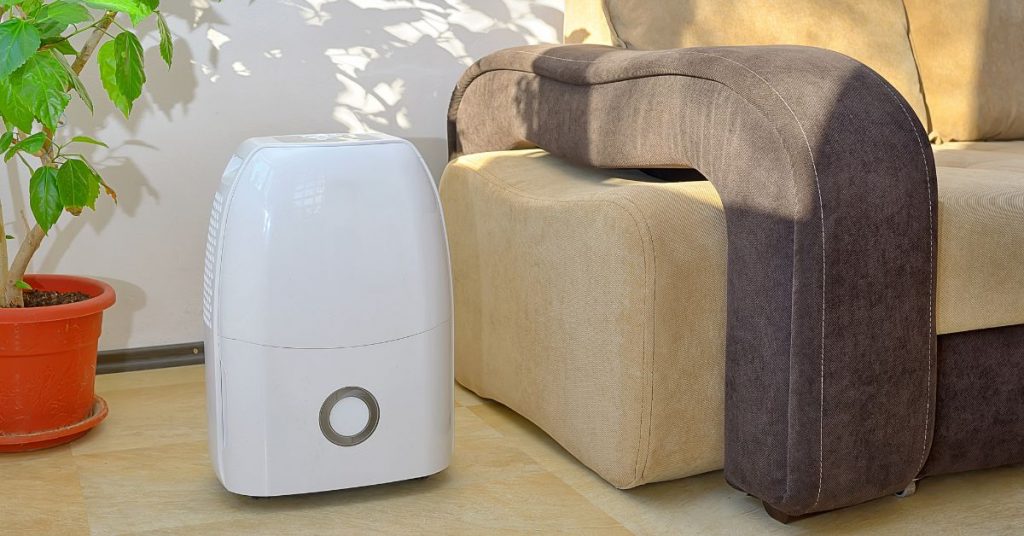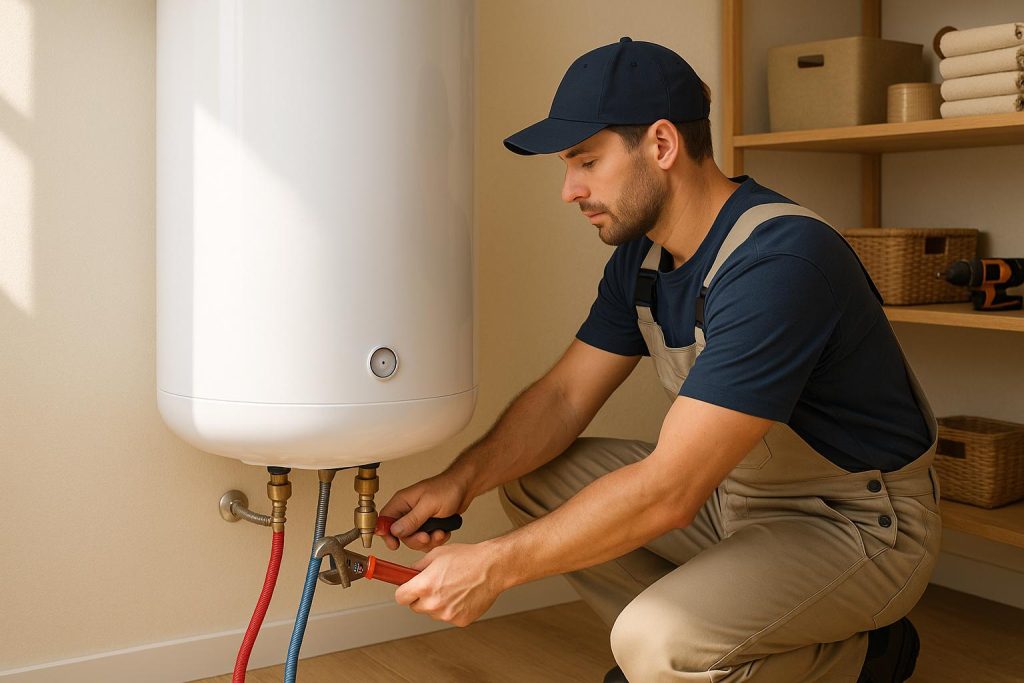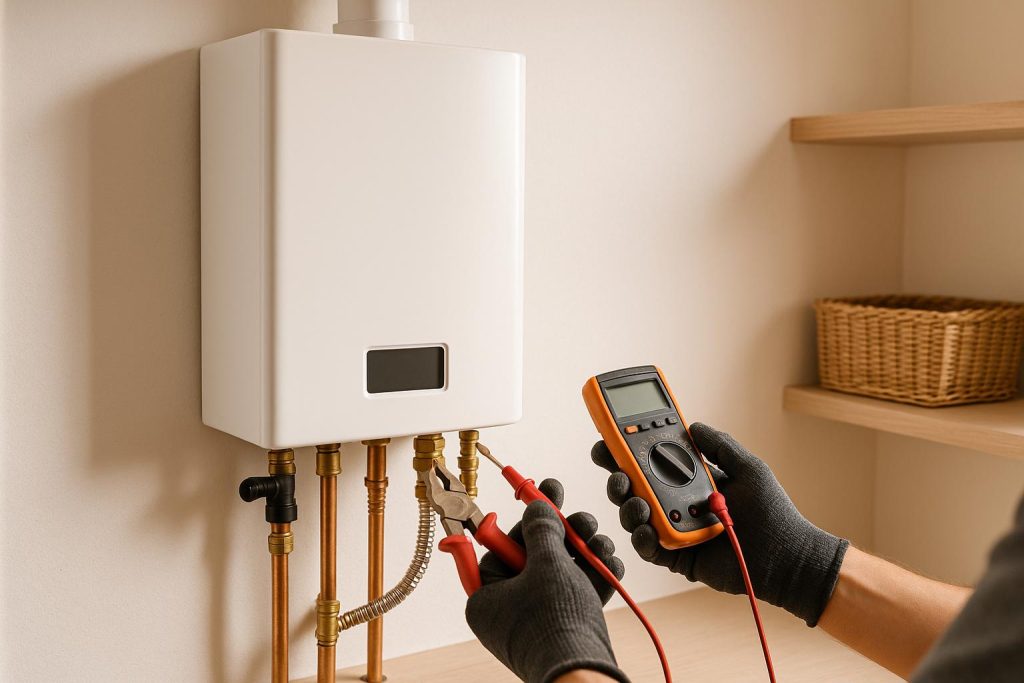
A humidifier does not inherently cool or warm a room; its primary function is to add moisture to the air. However, the way a humidifier affects the perceived temperature in a room depends on the current humidity level, environmental conditions, and individual comfort preferences:
In Winter (Cold Weather)
During the winter months, the air tends to be dry, which can make a room feel colder than it actually is. Using a humidifier to add moisture to the dry air can make the room feel more comfortable by reducing the sensation of dryness. In this sense, it may make a room feel slightly warmer or cozier, even though the actual temperature remains the same.
In Summer (Warm Weather)
In hot and humid summer weather, adding more humidity to the air through a humidifier can make a room feel warmer and less comfortable. This is because higher humidity levels can hinder the body’s natural cooling mechanism (sweating), making the room feel muggy and less pleasant.
In short, a humidifier will cool down a room during the summer, provided that the relative humidity is not too high. The humidifier will release moisture in the air which will then evaporate and take away heat from the room.
A humidifier can make a room hotter than it was if the relative humidity is too high. As the humidifier releases more water in the air, evaporation (which is what creates the cooling effect) becomes impossible. This can also cause mold problems and other health issues.
In winter when temperatures are low and relative humidity levels are also low, a humidifier will make a room warmer and not cool. Dry winter air pulls moisture from our skin which makes us feel cold. A humidifier hydrates the skin and as result we feel warmer.
Humidifiers vs Relative Humidity

Obviously, the word humidifier comes from humidity. And humidity is the amount of water vapor in the air.
Importantly, relative humidity is the amount of water vapor held in the air, expressed as a percentage of the total amount that the air can hold at that temperature. Relative humidity therefore changes as temperature also changes.
An increase in temperature results in an increase in relative humidity and vice versa. That is the reason why relative humidity is high in summer and low in winter.
Humidifiers as I mentioned are used to humidify a room. Humidifying a room means increasing the relative humidity of the air. Read more on how humidifiers work in this post.
As such, you can then conclude that humidifiers are ideally used when the relative humidity is low. Low humidity is just as bad as high humidity.
Have you ever wondered why areas with high humidity feel hotter than areas with low humidity even when the temperatures are the same?
The human body has a natural mechanism of cooling itself known as sweating. As the sweat evaporates from the skin, it absorbs the surrounding heat thereby creating a cooling effect.
That process works well in arid areas like Arizona and Nevada. The low humidity makes the air always ready to take up the moisture from the sweat.
Things are however a little different in areas where humidity levels are high like Florida. Since the air is already saturated with moisture, it cannot take more moisture from our bodies and that is exactly why high humidity makes it feel hotter than it actually is since the body cannot cool down.
Apart from that, the body feels sticky due to the accumulation of sweat. With that in mind, you can now understand why a humidifier can cool as well as warm a house, depending on temperature and humidity levels.
How a Humidifier Cools a Room
For a humidifier to cool a room, there are certain conditions that first need to be met. To start with, the relative humidity of the room needs to be low. Having a humidifier in a room with high humidity will make the room even warmer.
The best type of humidifier to use to cool down a room would be an evaporative humidifier. An evaporative humidifier is a type of cool-mist humidifier which passes air through a moistened filter so that it can evaporate the moisture in the wicking filter.
As the air moves through the wet medium, water absorbs heat from the air and evaporates in the form a mist/fog. And basically that is how these humidifiers cool a room.
Indoor air loses its heat to the water in the wet medium and as the water evaporates it creates a cooling effect. The humidifier also adds moisture in the dry air which increases its relative humidity.
I like these humidifiers since they are self-regulating. When the air is too dry, it takes up more moisture from the wet medium and when the air is moist evaporation is slow and hence it takes up less moisture from the wet medium.
Evaporative humidifiers work exactly like evaporative coolers, also known as swamp coolers. Evaporative coolers use water to cool down a room or house.

Just like evaporative humidifiers, swamp coolers have a water reservoir, a fan and a wet pad. The fan pulls warm air from the house and forces it through the moistened pad where the water absorbs heat from air.
After absorbing heat, the water evaporates taking heat away with it while cool air is circulated back to the house. With a swamp cooler, you need to open a window so that fresh dry enters the room while humid air is released out.
Evaporative coolers do not however work everywhere. They are ideal in arid areas which are hot and dry. These are areas like the South Western states of Arizona, Nevada, Utah and New Mexico.
Such areas have low relative humidity and the excess humidity added by the evaporative coolers will not affect the indoor comfort as it would in humid areas like Florida, Louisiana and some areas in Texas.
It is the same case for humidifiers. In the summer, humidifiers will make a room cool in arid and less humid areas but shouldn’t be used in humid areas as they can make the indoor air feel hotter than it actually is.
How Humidifiers Make a Room Warm
As I have mentioned, humidifiers can a make a room fell warm or cold. It all depends on the relative humidity levels inside the house.
Humidifiers are probably the last devices you would think of as a means to cool your house. There are definitely better alternatives in the market.
That also means that humidifiers are less likely to be used in summer. In most cases, humidifiers are used in winter when relative humidity is low.
In winter, a humidifier will not only increase the humidity of a room, it will also make it feel warmer. That is because the moisture added by the humidifier hydrates the skin, which prevents loss of moisture to the surrounding.
In winter, relative humidity is low which means that the air is dry. As such, the dry air will pull moisture from the skin which leaves it dry and exposed to the elements.
As the moisture from the skin evaporates, it cools the body down meaning that you feel cold despite having your thermostat set at a comfortable level.
By having a humidifier release moisture in the air, the dry air will become humid and will therefore not pull moisture from the skin. Without losing moisture (and therefore heat) to the surrounding, your body is able to stay and feel warm.
That is one of the advantages of a humidifier. Arid areas have even lower humidity levels in winter which makes a whole-house humidifier in those areas a great choice.
Humidifiers vs Dehumidifiers
A dehumidifier is an appliance that removes moisture from the air. It works well especially in areas with high levels of relative humidity.
Dehumidifiers are usually used during the summer while humidifiers are mostly used in winter. Humidifiers need to be refilled with water while dehumidifiers need to have their water (condensate) emptied.
So, what is the effect of a dehumidifier on the indoor temperature? Will the room feel warmer or cooler?

A dehumidifier does not cool a room, but it makes it feel cooler. Again, that has everything to do with relative humidity.
As I mentioned, Florida feels hotter than another less humid state because of the high relative humidity there. If the humidity in Florida can be lowered, the air will feel cooler. And that is exactly what dehumidifiers do.
A dehumidifier pulls air from the room, removes moisture through condensation or other process and then releases the less humid air back to the house, without cooling it. By lowering the relative humidity, our bodies are then able to perspire naturally which is what creates the cooling effect.
While a humidifier can cool or warm a room depending on temperature and relative humidity, a dehumidifier will only cool the room. Dehumidifiers are also bigger in size than dehumidifiers.
Humidifiers vs Air Conditioners
Air conditioners are the best appliances for cooling rooms. For proper cooling to happen, heat must be removed from the indoor air and transferred outdoors.
That is the reason why air conditioners have an indoor and outdoor unit. The indoor unit absorbs heat from the air while the outdoor unit releases it outdoors.
Even portable air conditioners which are placed indoors need a hose to vent the hot exhaust air outdoors. Humidifiers are not vented and are therefore not an excellent cooling option. Again, even evaporative coolers which work like humidifiers need to be vented or have a window opened.
Apart from cooling, air conditioners also dehumidify the indoor air. As the air is being cooled, the moisture in the air condenses and is drained outside.

If you need to cool down a room, you should invest in a portable or window air conditioner unit. Folks in hot and dry areas can also consider evaporative coolers, which can also be used outdoors.
A humidifier can however help in saving costs in winter when heating the house. How you ask?
I mentioned that low humidity pulls moisture from our skin making us feel cold. What most folks do is increase the heat more on the thermostat. Unfortunately, that makes the air even drier and the effects of low humidity will be severe.
By having a humidifier to increase indoor humidity levels, your body will stay hydrated and warm and you won’t need to add the heat output of your furnace. That is how a humidifier can help you save heating costs.
Wrap Up
In conclusion, a humidifier will cool your house if the air is dry (low humidity) and the indoor temperature is high. However, if the relative humidity is high, a humidifier will make the room hotter than it was previously.
If all you need to do is cool a room, there are better choices in the market.






